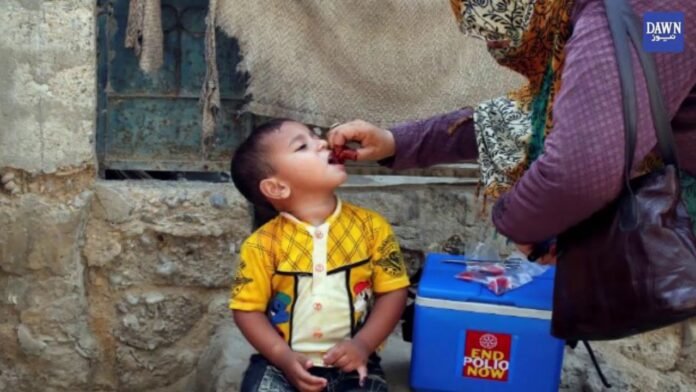Among health authorities, the discovery of another polio case in Pakistan is causing concern. A two-year-old child from Union Council Tamir-e-Nau in Quetta, Balochistan, has been paralyzed by this disease. This incident adds up to five children getting infected with polio only in Pakistan this year. This shows that getting rid of such crippling diseases remains a challenge for the country.
Geographical Distribution and Vulnerable Regions
Health officials have reported four cases in Balochistan province and one case from Sindh province, respectively. These different locations where people suffer from poliomyelitis reflect their susceptibility, therefore indicating the need for area-specific interventions. Polio outbreaks have been frequently occurring within Balochistan, thus necessitating more efforts on immunization drives and public health campaigns there.
Environmental Surveillance And Findings
Environmental samples have been very helpful in monitoring the presence and transmission of poliovirus. So far, 174 environmental samples collected from 44 districts across Pakistan have tested positive for the virus. These findings suggest that it is widely distributed among different communities. Thereby putting them at constant risk, especially those. Who remain unvaccinated or are not fully vaccinated.
Challenges Towards Achieving Polio-Free Status
The fact that polio was detected through an environmental sample confirms the challenges faced by Pakistan toward its complete eradication. Many factors are linked with this problem, including misinformation about vaccines. And logistics difficulties in reaching remote areas, sometimes compounded by community resistance. Additionally, due to the COVID-19 pandemic, all routine immunization activities were disrupted, leading to a decline in uptake rates and complicating efforts to maintain high coverage levels.
Governmental And International Response Efforts
In response to the ongoing threat posed by this disease, national governments and global agencies have taken measures for public safety against infections caused by poliovirus strains circulating worldwide, including those found within countries like Pakistan, where it poses significant risks if not addressed immediately. Frequent rounds of mass vaccination campaigns across different regions coupled with awareness creation programs targeting various segments of society on the benefits of having their kids vaccinated against polio at early stages of life. The WHO and UNICEF provide financial, technical, and operational guidance to help ensure that all children are reached through immunization services.
The Way Forward
To stop the re-emergence of polio, health authorities should focus more on vaccination coverage and public health education. There is a need for an improved surveillance system that can rapidly detect new cases as they occur, hence enabling prompt response towards them. Vaccine hesitancy needs to be addressed from its roots while at the same time ensuring equitable access to quality healthcare services, especially in remote areas where people may not have the easy reach or affordable cost.


